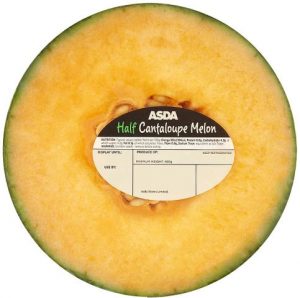A mother from Queensland has shared the heartbreaking moment she was told she’d contracted Listeria and passed it to her unborn baby.
 Jeanya Rush, 20, from Brisbane, was six months pregnant with her second child – a baby boy – when she started to experience ‘excruciating headaches and high fevers’.
Jeanya Rush, 20, from Brisbane, was six months pregnant with her second child – a baby boy – when she started to experience ‘excruciating headaches and high fevers’.
The young mum told Katherine Davison of the Daily Mail Australia that she later discovered she had contracted Listeria – from either a pre-cut fruit salad, cream cheese or an ice-cream she had eaten – and had passed the foodborne illness on to her baby boy, who she and her partner Levi had named Zephaniah.
Doctors told her the infection had left her son ‘severely disabled’ and she and Levi faced the agonising decision whether to let him go.
‘I had tested positive for Listeria. It had infected my uterus and also reached Zephaniah’s brain,’ Ms Rush wrote in a heartrending Facebook post.
‘He [the doctor] told us that Zephaniah could not live without the machines that aid him and if he were to survive he would be severely disabled for the rest of his life.
‘He would show no emotion or understanding he would be basically be in a comatose state. And worst of all, it was our choice whether or not to let him go. Levi and I were broken. Nothing could ever describe the pain we felt in that moment.’
Ms Rush said it was the hardest decision they had ever had to make.
‘It took a long time to decide. As Zephaniah stayed on life support, we were by his side and it made everything that much harder,’ she wrote.
‘But we both knew what we had to do and eventually Levi and I came to a decision and it was the hardest one we have ever had to make. We chose to let Zephaniah go and relieve him of his pain and suffering.’
Ms Rush had tested positive for listeria – leading their baby to be severely disabled – and the young couple made the devastating decision to let him go.
‘The midwives and doctors arranged everything. We had our loved ones come in to say good bye to our boy, Zephaniah was blessed by the Elders of Levi’s church, and it was one very long emotional day preparing to send our boy off,’ Ms Rush wrote.
‘When the time came, Levi and I were taken to a private room with Zephaniah, accompanied by 2 lovely midwives.
‘They took out his breathing tubes and we held Zephaniah for approximately an hour until his final breath.
‘When he turned cold in my arms it felt as if my heart had been ripped out of my chest.
‘We held him for a little while longer before the midwives took him away. We returned to our room and sat in silence. I will never forget the pure pain of that moment.’










